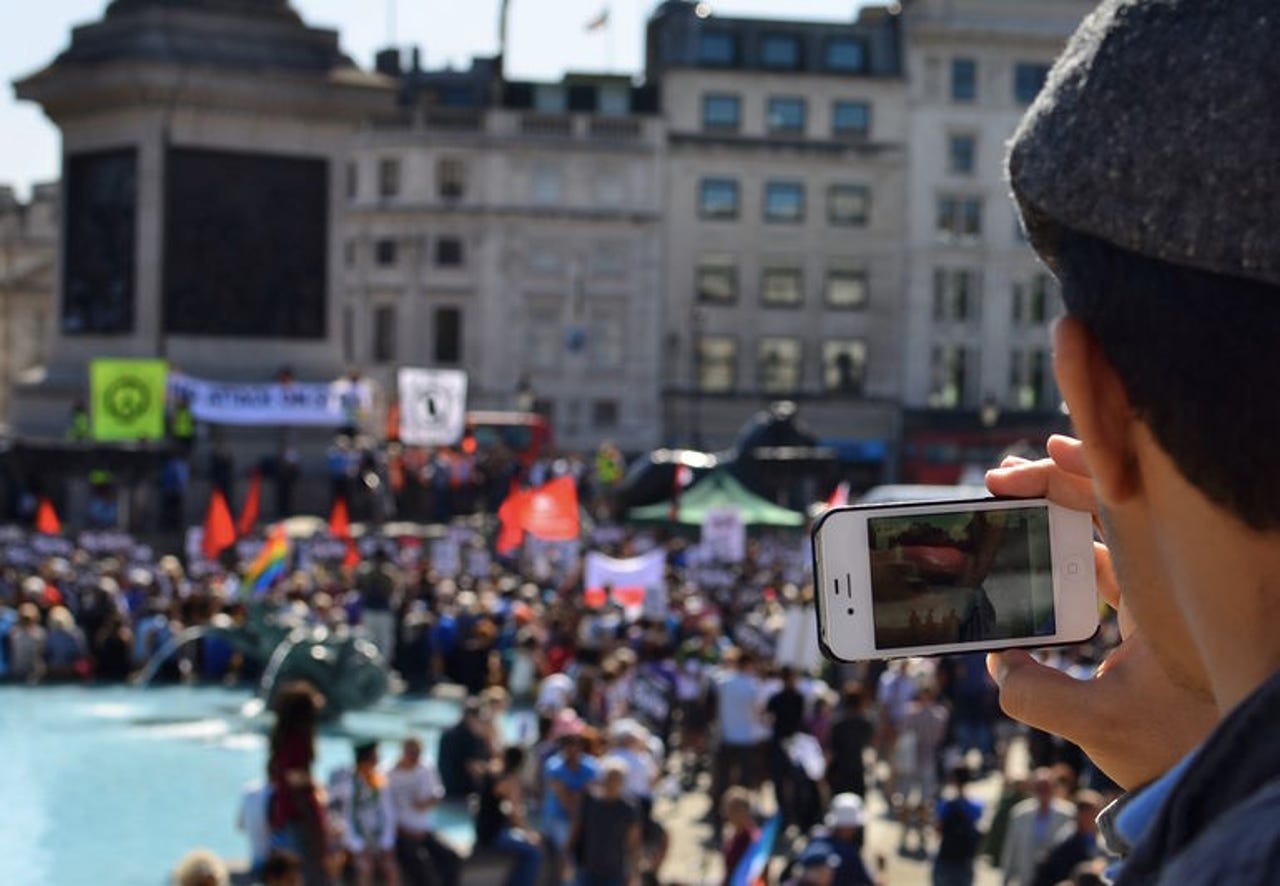Apple patent could prevent 'illegal' iPhone recording


(Image: file photo)
Apple has been awarded a patent that could help -- and hinder -- depending on how you look at it.
The patent, granted on Tuesday by the US Patents and Trademark Office, allows an iPhone or iPad camera to receive infrared data that can be used to transmit information about an object or a place -- like providing guided tours for a museum exhibit, or offering virtual coupons in a store or retail outlet.
But on the flip side, the patent notes that the same system can be used prevent capturing images or videos -- such as "a concert or a classified facility," by transmitting a signal that would disable a phone's recording feature.
That means just as a singer or performer could prevent illegal pictures or streams from being made, customs officials would be able to block anyone taking photos at a port of entry or a border. What's to say that the technology, if it ever makes it past the drawing board, won't be used by police to prevent photos and videos from protests?
It's not the first time Apple has pushed for a similar technology.
The company applied and won a patent in mid-2012, which would allow for "enforcement of policies upon a wireless device." Simply put, it would force a device into acting a certain way based on the surrounding areas -- such as forcing a phone to be on silent in a cinema, putting a phone into sleep mode in an academic exam, or an airline turning off cell service on a flight. One example in the filing said some police or government operations "may require complete 'blackout' conditions," which depending on where you are in the world could mean state-level censorship.
There's no word on if this technology will ever make it to see the light of day. Apple has filed hundreds of patents that have never come to fruition, however.